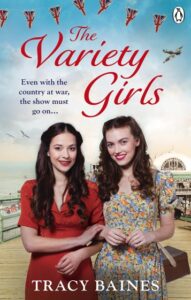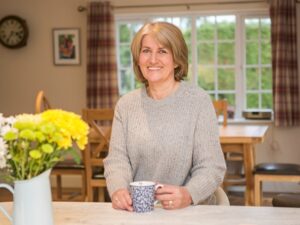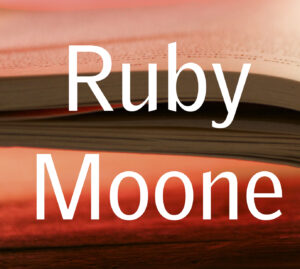Tracy Baines: Debut Novel – The Variety Girls
20 February 2020
 I’m delighted to welcome Tracy Baines to the blog to talk about her debut novel, The Variety Girls.
I’m delighted to welcome Tracy Baines to the blog to talk about her debut novel, The Variety Girls.
Tracy, I’m so pleased that you could join us. Could you tell us a little more about your book?
Hello, thank you for inviting me to tell you about my debut novel, The Variety Girls, a saga set in the variety theatres of WW2
After the tragic death of her father, aspiring singer Jessie Delaney has been forced to live with her bullying aunt and dreams of getting the break of a lifetime to escape.
When she’s cast as one of the Variety Girls in a new show at the Empire Theatre, Jessie hopes this is the new beginning she’s been longing for. But following her dreams on stage will mean being separated from sweetheart Harry.
As she starts her new job, it’s not long before she forms a close-knit friendship with Frances and Dolly, although the girls soon find that life in the theatre isn’t always glamorous. And with the country on the brink of war, everyone is facing an uncertain future. Can friendship help Jessie through the challenges ahead?
That sounds wonderful. How long did the book take to write? How much re-writing do you normally do?
I started writing the book in May/June 2018 although I had been thinking about it for a few months before that. At the beginning of the year I stopped dithering and made up my mind to join the RNA New Writers Scheme because it had two things I thought would help – a deadline, and professional feedback.
I was lucky to get a place and when details came in about the conference I thought I would book for the Saturday. It was in Leeds and I could come along for the day then leave to visit my Mum in Cleethorpes – it was her birthday on the Sunday. That gave me another deadline – I had to have a synopsis and first chapter before the conference, so I set to work.
The one to one I had resulted in a two book deal with Ebury – and yet another deadline and another discovery – deadlines suit me. There’s nothing like the delivery date on a legal contract to spur you on. There was no time to procrastinate and I powered my way through the book. It worked for the second book too.
I suppose it takes me about 6 months to get a book in shape and ready to send to my agent. I’ve usually worked out the spine of the book before I start writing. I find a synopsis really helps me to work out what that spine is. I may deviate a little from it but not much. I edit as I go along, tweaking and changing, rearranging. I’ve been writing short stories for years, so I wasn’t new to writing and I work in much the same way – only it’s more challenging holding an entire book in your head. I hadn’t realised how much stamina I would need for a novel. It’s mentally draining.
I’m finding out what works for me as I go along. I’ve read so many books on writing and there and so many different ways to write a book – plotters and pantsers, those who do full bios for each character, those who don’t, and so on. I sort of ‘feel’ my way into the story. In the end you have to find out for yourself what ‘your way’ is, and stick to it.
The RNA NWS is fantastic for supporting new writers, and the conference is an excellent way of connecting with publishers. What is your writing day like now you have your contract?
I start writing around 10.00 am but when I’m working on a book I usually wake up thinking about it – that’s if I’ve been to sleep. When the ideas are coming thick and fast I don’t sleep much at all as my brain is so busy working things out. It’s all work in and off itself, it’s all building towards the writing of it.
Fathoming lots of things out in my head means I’m more ready to write when I sit down. I sort of know where I’m going in small chunks; because I have my synopsis I have the overall arc of the story to keep me focussed. On the whole, it makes me quite productive, which isn’t to say I don’t have bad days, I do, but I try to keep a working mindset. You can’t quit a job just because it’s difficult one day. You have to keep going forward and hoping that the next day will be better.
I’ll work until about 2.00pm, taking short breaks to refresh myself. Then I’ll walk the dog. I find leaving my desk and getting out in the fresh air helps me think about the next part of the book. If I have a flash of inspiration I’ll leave a message on my phone so I don’t forget.
I do all sorts of things – admin, etc for the rest of the day and I may read for research in the evening. If I have something happening during the morning, I’ll use the evening to catch up on my writing. I find it’s important to add to the word count every day – even it’s only a line, a paragraph. It gives a feeling of forward momentum.
What kind of research did you do before beginning the book?
I read an enormous amount. My collection of second-hand books relating to WW2 is growing as is my collection of biographies and non-fiction relating to variety theatre. When I was a child my parents took over the management of seaside pub that faced the pier in Cleethorpes. My dad started putting on live entertainment and we had open access to all the shows on the pier. In their limited time off my mum and dad loved watching movies and all those heart-warming films were a great background for writing sagas.
When I was sixteen, I got a job back-stage on the summer season that year and loved it. After school I worked most evenings on the shows that toured and came to the pier, and did every summer season and panto for a few years. In between my cues I read biographies of old variety and vaudeville stars like Max Miller and George Formby.
My husband was a variety entertainer as was his father, so I have lots of personal and family experience to draw on. In lots of ways I feel like I’ve been researching this book my whole life.
Where did your research for the book take you?
I’ve had great fun researching. Reading old newspapers on the archive and various books to get a feel for the period has been a part of that. I watch copious amounts of old movies on Talking Pictures TV channel. When I’m out and about I visit beautiful old theatres and get to talk to archivists and other enthusiasts. Their passion shines through and talking to them will often give me ideas for a scene or new character.
The book opens in Norfolk; originally I’d wanted to set in in Hemsby where I have family connections but Hemsby wasn’t large enough for Jessie’s uncle to have a prosperous solicitor office. I also needed Jessie to be able to get to see a show on the pier and Hemsby was in close proximity to Great Yarmouth.
I had to have a rethink. I knew Cromer pier was further up the coast so looked on a map for a large market town and settled on Holt. I researched a lot on the internet and when I’d completed the first draft took a trip to north Norfolk. It was helpful to be able to soak up the distinct details of each place and the surrounding areas. When I came home I was able to add certain elements that those who know Cromer and Holt would recognise – like what you can see as you walk off the pier, small things that add to the authenticity of setting.
This Christmas I dragged my husband along to a WW2 event at Arlesford Station in Hampshire. It was fabulous fun and the reenactors take great care to make sure their clothing etc is correct for the period. We got to ride up and down on the train, watching the steam billow out along the landscape. It was wonderful and really gave me a sense of train travel of the time.
I also go and see a lot of live shows to soak up the atmosphere. I take my long suffering husband along because he gives me a different perspective of things, and always brings afresh insight that I might not otherwise have considered. Research doesn’t have to be dry and a day out can really inspire.
What advice would you give to aspiring authors?
Persevere. It’s not easy, nothing worth having ever is, but if you feel at your happiest when you’re writing then every stolen minute is worth it. I have been on the verge of giving up so many times but I’m so glad I kept at it. Nothing is ever wasted.
I attended numerous writing classes, conferences and talks over the years – anything were I would be among people who wanted to write. I might not have had the time or mental space to write what I wanted to, but I kept myself in writer mode with short stories and articles – things I could finish, things I could get published. Proof that I was a writer.
I learnt so much from writing to a market with my short stories. I cannot tell you how much it informs my writing and the way I work today. I didn’t realise how valuable it was until now.
Added to that I’d say, write what you can, when you can, but most of all finish it! And send it out, it’s no good sticking it in a drawer – you won’t learn to take rejection on the chin if you don’t lay yourself open to it.
Can you tell us what you are working on now?
At the moment I’m working on getting my second book, Christmas with the Variety Girls ready for publication in October. I’m fleshing out a possible book three and playing around with other ideas in a similar setting. I love writing about Variety theatre, and if I’m going to spend a large part of my day writing I want it to be with characters and a setting I care about.
Thank you so much for taking the time to talk to us today.
About the Author:
 From the age of sixteen, Tracy worked backstage during summer seasons, pantomimes and everything else in-between on the pier. She met her husband when he was appearing with the Nolan Sisters and she was Assistant Stage Manager.
From the age of sixteen, Tracy worked backstage during summer seasons, pantomimes and everything else in-between on the pier. She met her husband when he was appearing with the Nolan Sisters and she was Assistant Stage Manager.
The first two books in the Variety Girls series are set in Cleethorpes, in the square mile that was her childhood home.
She has also written articles, and short stories for Woman’s Weekly, Take a Break, The People’s Friend and My Weekly among numerous others.
Tracy lives in Dorset with her husband and springer spaniel, Harry. Her children and grandchildren live close by.
Here’s where you can get a copy of The Variety Girls:
Here’s where you can keep up with Tracy:
About the interviewer
 Ruby Moone lives in the wilds of Lancashire with her husband and writes historical and contemporary romance. At school, her teachers said that she lived with her head in the clouds and if she didn’t stop daydreaming she would never get anywhere. She never did stop daydreaming, and after years of happily living in the clouds, decided to write the stories down.
Ruby Moone lives in the wilds of Lancashire with her husband and writes historical and contemporary romance. At school, her teachers said that she lived with her head in the clouds and if she didn’t stop daydreaming she would never get anywhere. She never did stop daydreaming, and after years of happily living in the clouds, decided to write the stories down.
https://www.facebook.com/RubyMoone/
https://twitter.com/RubyMooneWriter
https://www.instagram.com/rubymoone/



